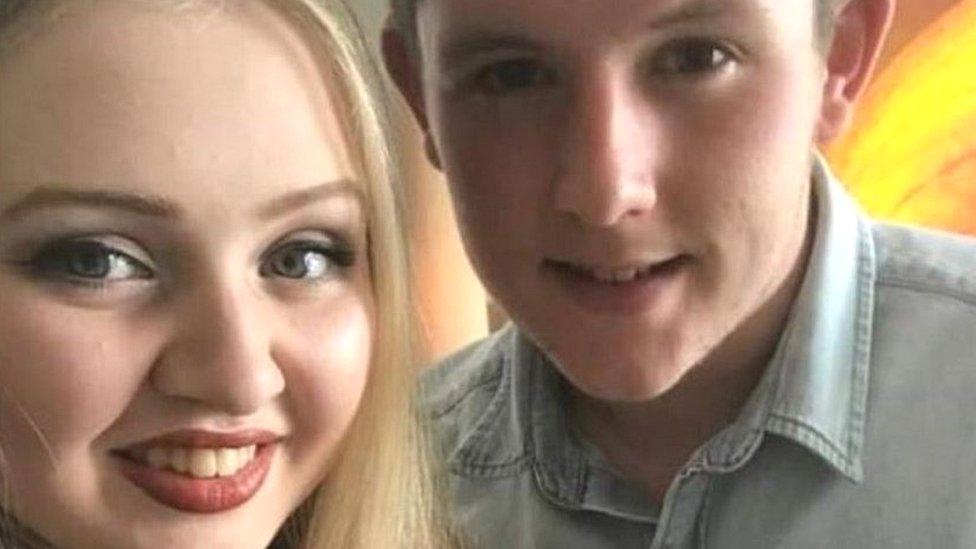Manchester Arena attack: Government considering change in registering deaths
- Published
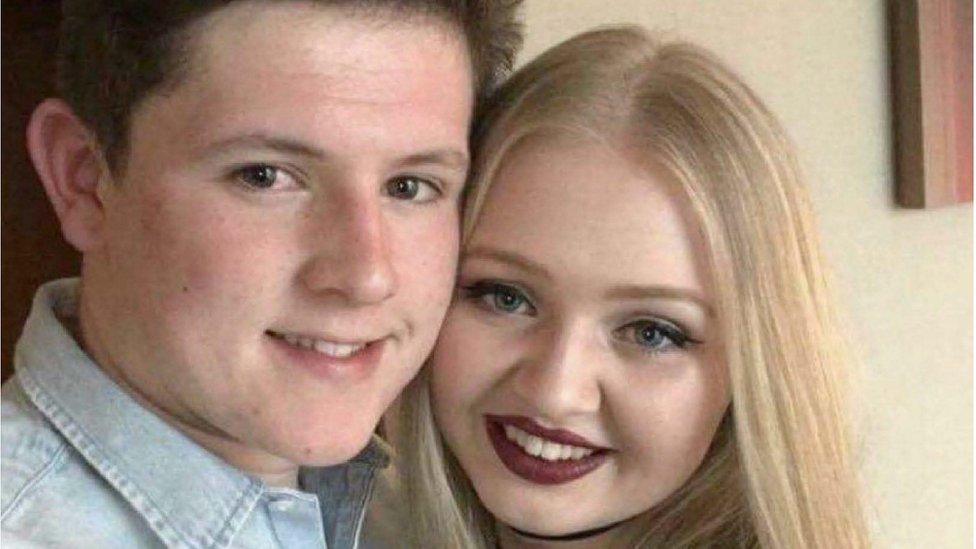
Liam Curry, 19, and Chloe Rutherford, 17, were killed in the terror attack in May 2017
A law preventing families registering the deaths of loved ones if there has been an inquest or public inquiry will be reviewed with the "utmost priority", a home office minister has said.
Teenagers Chloe Rutherford and Liam Curry from South Shields were murdered in the Manchester Arena attack in 2017.
Their mothers are calling for the right to register their deaths themselves.
Responding to an appeal by their MP in the House of Commons, Tom Pursglove said changes were being considered.
In an adjournment debate on Wednesday evening Emma Lewell-Buck, the Labour MP for South Shields, called on the government to "inject some humanity and empathy into this decades-old legislation".
Liam's mother, Caroline Curry, said she should be the one to "put the personal details of Liam" on the form.
"It shouldn't be a bureaucrat, somebody who didn't know Liam," she said.
"I'm his mam. It's my job. It's not somebody else's job, it's my job."
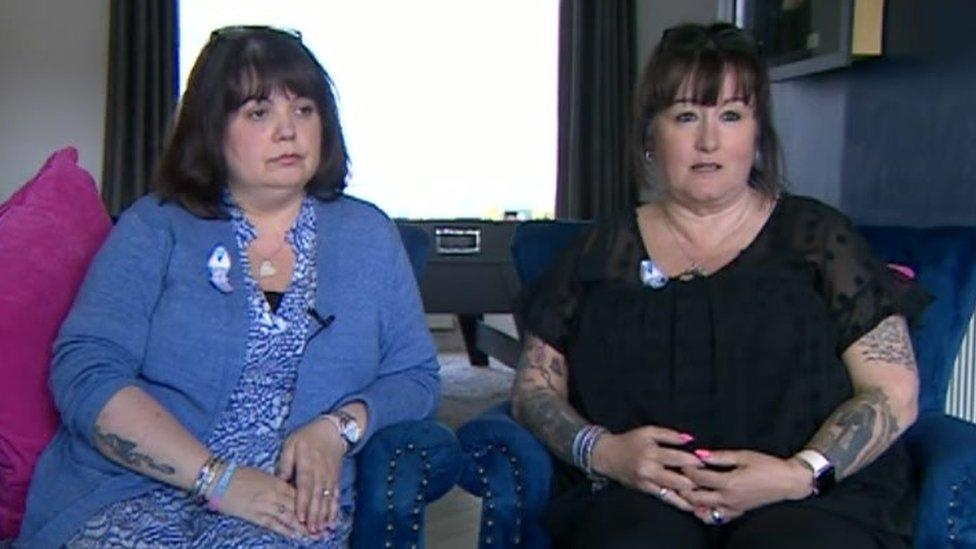
Lisa Rutherford and Caroline Curry do not want a "bureaucrat" registering their children's deaths
Chloe's mother, Lisa Rutherford, added that it was a "really important" part of the grieving process.
"Being told no you can't, just because it's a procedural thing, it doesn't sit right," she said.
The deaths of 19-year-old Liam and his 17-year-old girlfriend Chloe are among 22 being investigated by a public inquiry, following inquests.
In such cases the Births and Deaths Registration Act 1953 only allows a local registrar to register a death.
In the Commons Ms Lewell-Buck said: "We've been told that the rationale for this arrangement is that it would be too distressing for families to register their deaths.
"It is surely not up to governments or ministers to decide what is and what isn't too distressing for a family.
"Only a family can know how they feel."
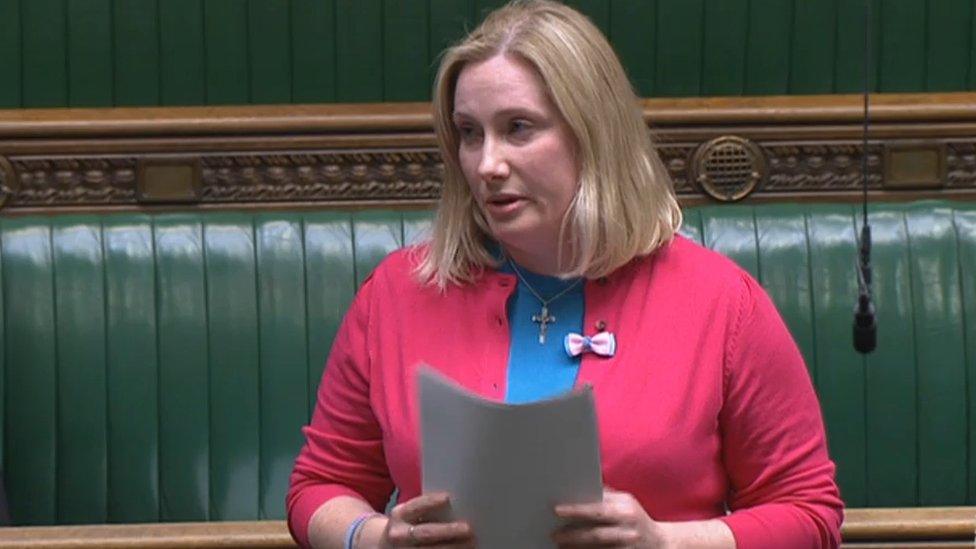
South Shields MP Emma Lewell-Buck raised the issue in a House of Commons adjournment debate
Ms Lewell-Buck said families needed to be able to grieve.
"They cannot grieve if they cannot do this final official act for their children," she said.
Mr Pursglove responded that the possibility of allowing families to choose whether to be involved in the registration process had been discussed.
But it was a "complex issue" which needed to be considered "carefully and sensitively" to avoid "unintended consequences", he said.
"We must not make any changes which, although well-intentioned, might cause confusion or additional distress for bereaved families because of additional complexity in the system," he said.
"But I absolutely reiterate my commitment to looking at this issue with the utmost priority."

Follow BBC North East & Cumbria on Twitter, external, Facebook, external and Instagram, external. Send your story ideas to northeastandcumbria@bbc.co.uk, external.
- Published25 March 2022
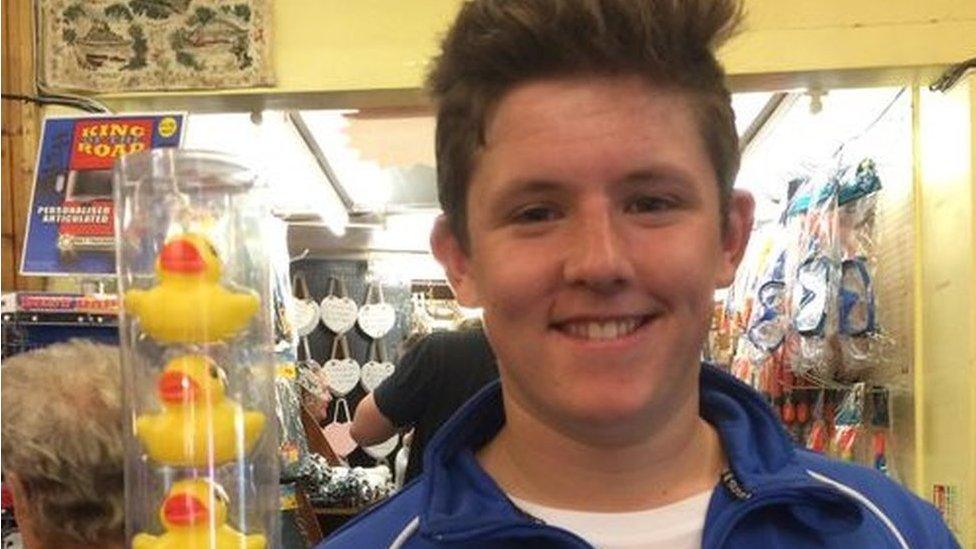
- Published17 September 2020

- Published20 August 2020
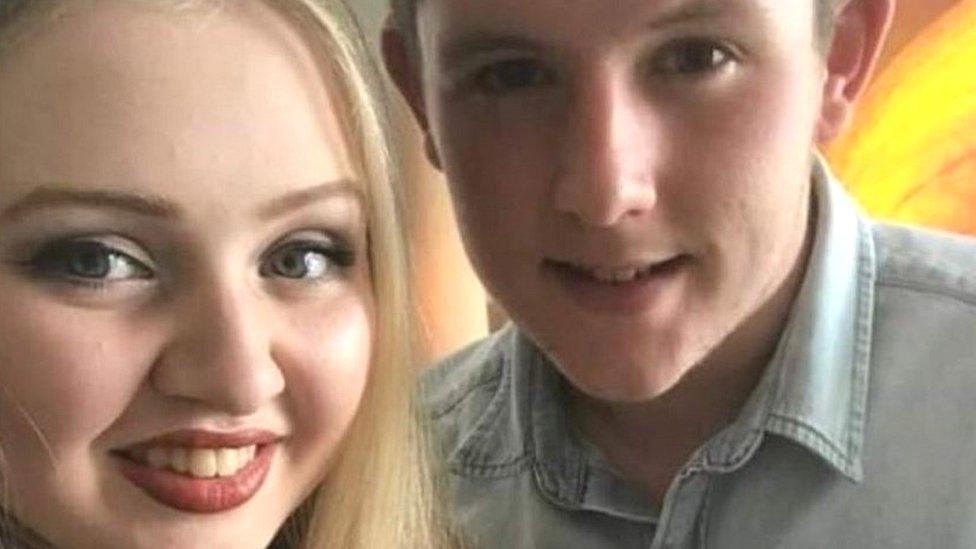
- Published22 May 2018
